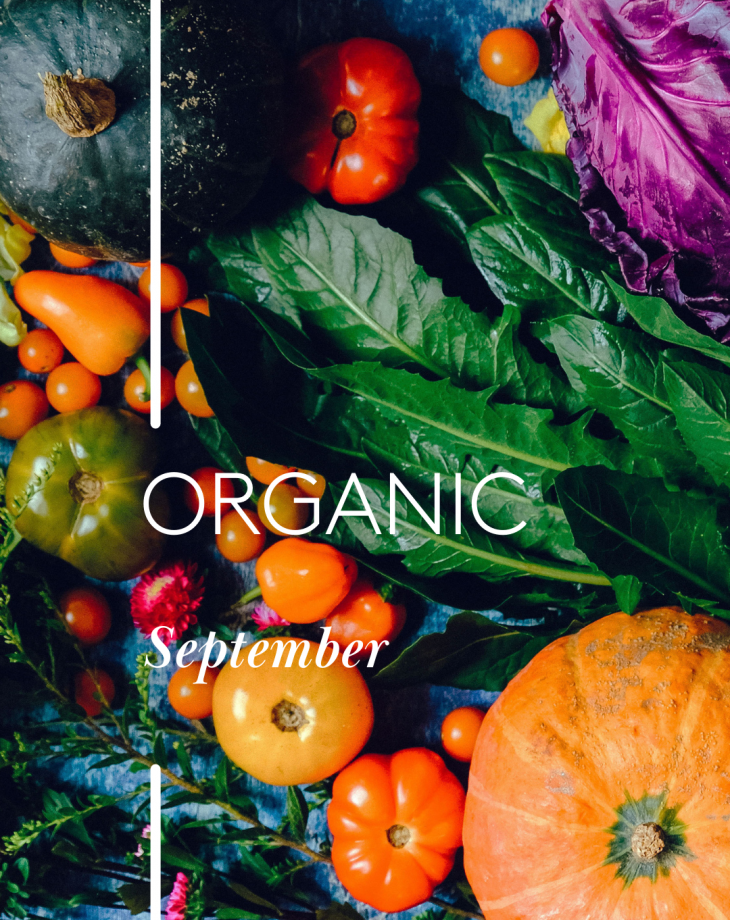Organic September is an annual campaign that celebrates and promotes all things organic. While its primary goal is to raise awareness about the benefits of organic farming and products, this observance also presents a unique opportunity to explore the connections between organic nutrition and menopause. Menopause is a significant phase in a woman's life characterised by hormonal changes, and the choices we make in our diet can greatly influence our experience during this time.
Menopause and Hormonal Changes:
Menopause typically occurs between the ages of 45 and 55 and marks the end of a woman's reproductive years. During this transition, the body undergoes various hormonal changes, primarily involving a decrease in estrogen levels. These hormonal fluctuations can lead to a range of physical and emotional symptoms, including hot flashes, mood swings, and changes in metabolism.
The Role of Nutrition:
Nutrition plays a crucial role in managing menopausal symptoms and supporting overall health during this life stage. Organic foods can be particularly beneficial during menopause for several reasons:
-
Pesticide-Free: Organic farming practices prohibit the use of synthetic pesticides and herbicides. This is significant because pesticides can disrupt the endocrine system and may exacerbate hormonal imbalances already occurring during menopause.
-
Hormone-Free: Organic animal products are produced without the use of growth hormones or antibiotics. Consuming hormone-free meat and dairy can be essential for maintaining hormonal balance during menopause.
-
Nutrient Density: Organic farming methods often focus on soil health and biodiversity, resulting in crops with higher nutrient density. This can be beneficial for menopausal women, as nutrient requirements may change during this phase of life.
-
Reduced Toxins: Organic foods generally have lower levels of toxic substances like heavy metals and synthetic additives. Reducing exposure to these toxins can help support liver health, which is essential for hormone metabolism.
-
Omega-3 Fatty Acids: Organic sources of omega-3 fatty acids, such as flaxseeds and walnuts, can help manage inflammation and support heart health, which can become a concern for women in menopause.
-
Plant-Based Options: Organic agriculture often places an emphasis on plant-based foods, which can be beneficial for managing weight and reducing the risk of chronic diseases that may become more prevalent after menopause.
-
Phytoestrogens: Some organic foods, like soybeans, contain phytoestrogens, which are plant compounds that can mimic the effects of estrogen in the body. These can help alleviate some menopausal symptoms.
Incorporating Organic Foods:
To make the most of Organic September in the context of menopause, consider the following dietary tips:
-
Prioritise Organic Produce: Opt for organic fruits and vegetables to reduce pesticide exposure and increase nutrient intake.
Every year the Environmental Working Group publish thir list of the "dirtiest" Dirty Dozen and "cleanest" Clean Fifteen fruits and vegetables by pesticide content. If you want to start buying organic start with the ones on the dirty dozen list. Check them out here.
-
Choose Organic Meat and Dairy: Select hormone-free, organic meat and dairy products to support hormonal balance.
-
Embrace Whole Grains: Opt for organic whole grains like quinoa, brown rice, and oats to boost fiber intake and stabilize blood sugar levels. -
Include Omega-3s: Incorporate organic sources of omega-3 fatty acids, such as flaxseeds, chia seeds, and walnuts, into your diet.
-
Explore Plant-Based Proteins: Incorporate organic plant-based proteins like tofu, tempeh, and legumes for balanced nutrition.
In conclusion, Organic September serves as a reminder of the many benefits of choosing organic foods, particularly during the menopausal transition. By making conscious choices to prioritise organic produce, hormone-free animal products, and nutrient-dense options, women can support their overall health and potentially alleviate some of the challenges associated with menopause. Organic nutrition provides a natural path to nourishing the body during this transformative phase of life.

